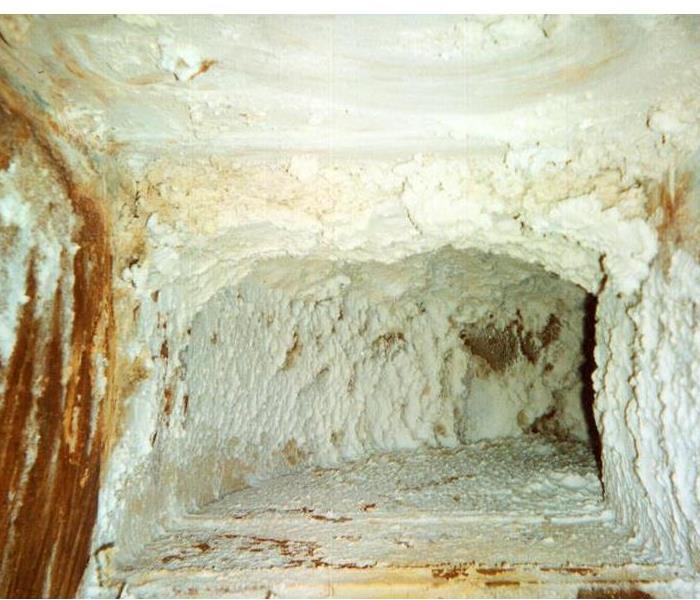Furnace Fire Facts & Maintenance
11/5/2019 (Permalink)
 Keeping your HVAC units clean and well maintained can decrease the odds of your unit experiencing a fire.
Keeping your HVAC units clean and well maintained can decrease the odds of your unit experiencing a fire.
The first time you turned on your HVAC in Springfield or Greene County this season, you may have anticipated two things; the warmth that would stop your feet from freezing, and the assurance that the unit would work for another season. But to guarantee that those two things would happen, your unit should be regularly maintained. Doing so not only confirms you’ll be warm this winter but can also keep you safe from dangerous and destructive fires.
Fire Hazards Near Your Furnace
A furnace is usually installed in a utility closest, garage, or basement, places that are also often used as storage areas. Because of that, many items may end up too close to the heating equipment, causing a fire hazard. To keep this from happening, there should be a 6’ radius clear zone around your HVAC unit. This is especially important for flammable items such as:
- Rags
- Clothing
- Paper
- Cleaning chemicals
- Gasoline
- Paint
- Kerosene
Fire Hazards in Your Furnace
Don’t panic! Your heating unit is safe, if it’s well maintained. But according to the National Fire Protection Association, heating equipment fires are the second leading cause of home fires, and nearly half of the fires in Springfield and Greene County that occur in December, January, and February.
Here are ways to decrease the odds that your HVAC unit will experience a fire:
- Change the air filter every three months. When it gets too dirty, air flow is restricted, causing your furnace to not only work less efficiently, but may eventually cause the motor to overheat.
- Have professional maintenance done on your HVAC unit yearly. They’ll check for and fix items such as faulty parts or bad wiring, which can cause the voltage to go too high. They’ll also check the bearings. When they’re tight, worn or dry, motor bearings can catch heat and eventually catch fire.
SERVPRO of Springfield / Greene County professionals routinely inspect heating, ventilation and air conditioning units. Keeping them clean can extend the life of the equipment.
Fire Hazards Due to Gas Leaks
If you use gas to heat your home, a gas leak could occur. This might happen if gas lines or certain furnace components are damaged or faulty. Gas line safety is critical to fire safety, as gas leaks cause natural gas to build up in the home, and could cause a fire or explosion. Throughout the cold season, be aware of the signs of a gas leak and call for furnace repair immediately if you experience:
- The smell of sulfur or rotten eggs
- High gas bills with no other explanation
- Difficulty breathing
- Drowsiness or fatigue
- Nose bleeds
- Dizziness
There’s an old saying that you should hope for the best but plan for the worst. So, keep a fire extinguisher in your kitchen and near any heating equipment, and make sure each room has a working smoke detector. And by having SERVPRO regularly maintain your HVAC unit, it’ll not only save you money, but may also save your life by preventing furnace fires.





 24/7 Emergency Service
24/7 Emergency Service